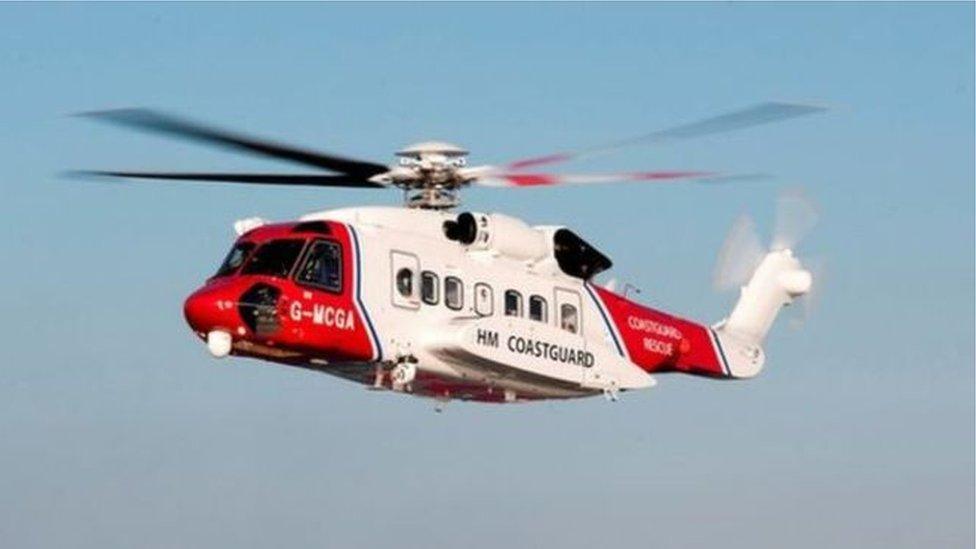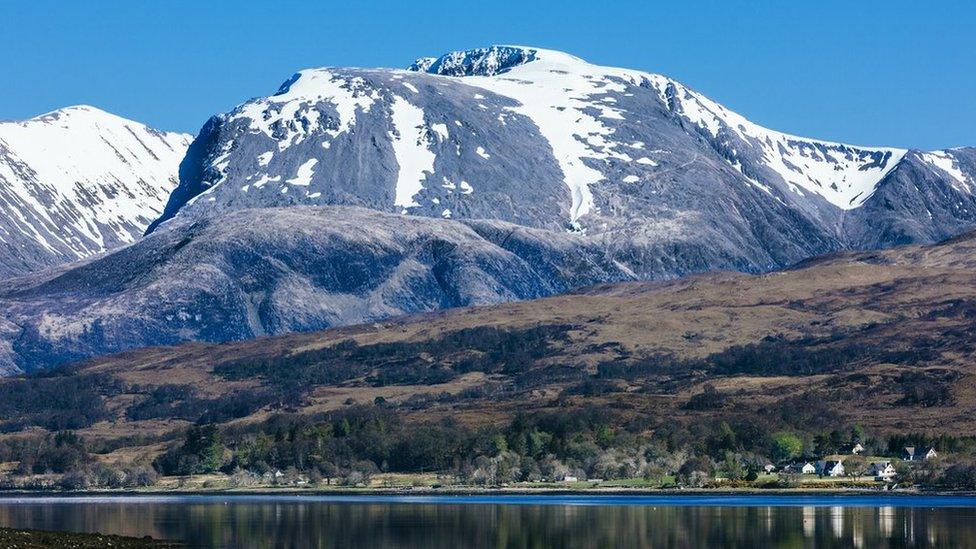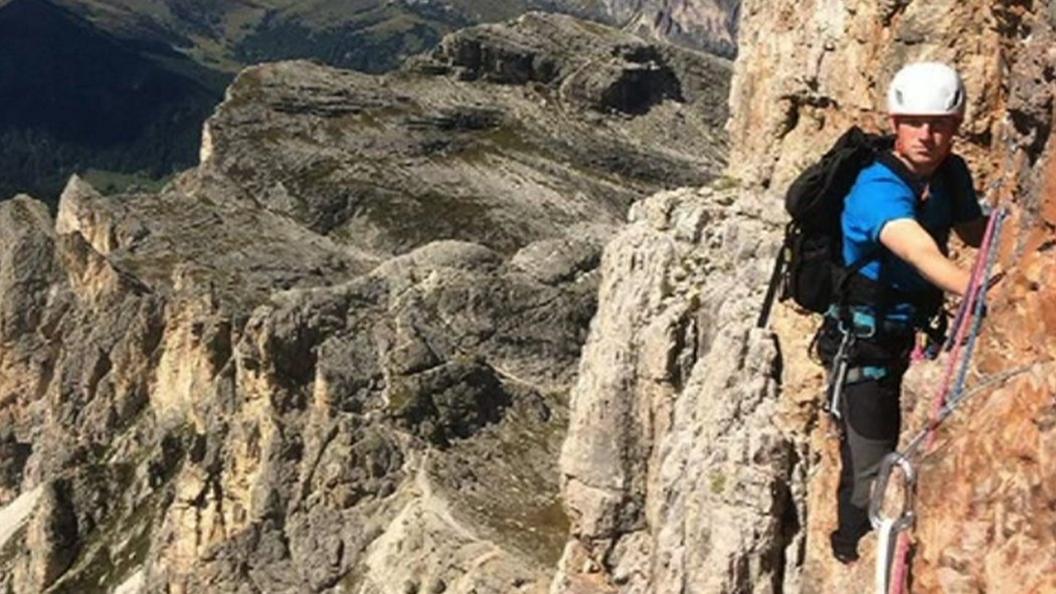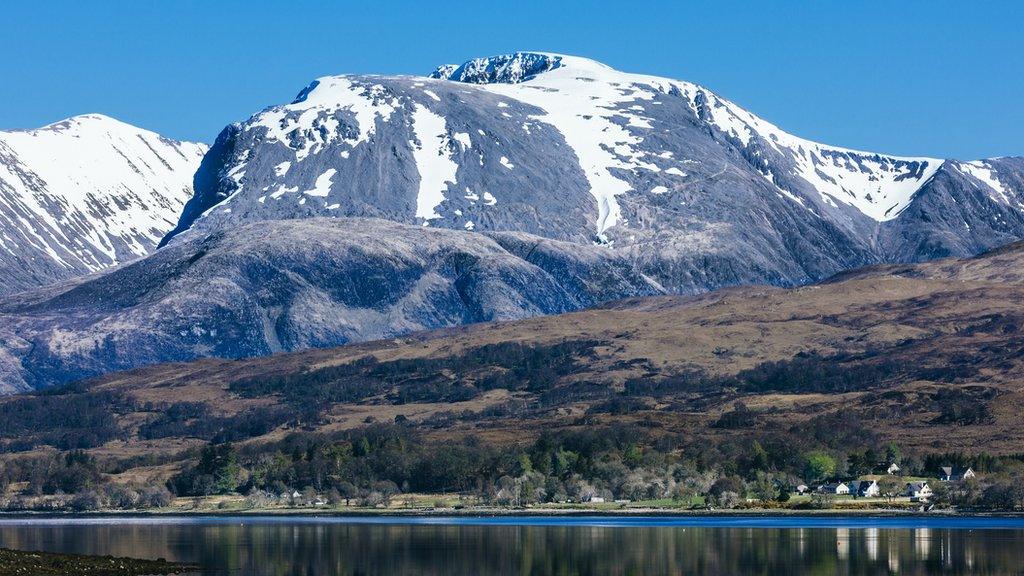Winchman recognised for courage in rescue on Ben Nevis
- Published

The winchman disconnected himself from the aircraft
A coastguard helicopter winchman has been recognised for his actions during the rescue of two fallen climbers on Ben Nevis.
Scott Sharman was part of an Inverness Coastguard crew sent to the aid of the men on 16 December last year.
Because of the terrain the climbers had fallen into from Tower Ridge, Mr Sharman had to climb to them without the safety of the winch.
He has received The Billy Deacon SAR Memorial Trophy.
The award is named after a Bristow Helicopters winchman who died after rescuing 10 people from a stricken cargo ship off Shetland in 1997.
Mr Sharman's citation for the award praised his courage and his efforts that put him at "significant personal risk".
'Deteriorating fast'
One of two climbers rescued from Ben Nevis was Cardiff University student Patrick Boothroyd, from Holmfirth, West Yorkshire. The 21-year-old died following his rescue.
His climbing companion, who had fallen to a different spot below the ridge, was injured but survived the ordeal.
Mr Sharman was winched to a small boulder field and then climbed from there using crampons and an ice axe to reach the first casualty, Mr Boothroyd.
The fallen climber was conscious but his condition began "deteriorating fast".
Mr Sharman, also a paramedic, gave Mr Boothroyd emergency treatment after they were winched onboard the helicopter, which was flown to a landing site and waiting ambulance.
With light fading, the Inverness Coastguard crew returned to the mountain to rescue the second climber.

The rescue was carried out under difficult conditions on Ben Nevis
Because of the difficult, snow and ice-covered terrain and the risks posed by the helicopter's downdraft, Mr Sharman disconnected himself from the safety of the winch wire and made his way to the casualty.
Mr Sharman moved the man to a place where they could both be brought onboard the helicopter.
'Significant personal risk'
The winchman's award citation said: "Scott's decision to leave the safety of the aircraft and be left alone on the icy North Face of Ben Nevis is beyond expectation.
"Throughout the rescue his performance stood out as remarkable.
"His decision to disconnect from the wire was made without hesitation, exposing himself to significant personal risk to minimise the risk to both the casualties and the aircraft.
"His ability to free climb across a steep snow field and employ paramedic skills on the side of a mountain is commendable, along with the strength of mind to quickly regain composure and focus on the recovery of the second casualty."
It added: "Scott displayed exceptional skill and courage in extracting the casualties from their precarious situation, offering them the best possible chance of survival."
- Published18 December 2018

- Published17 December 2018
